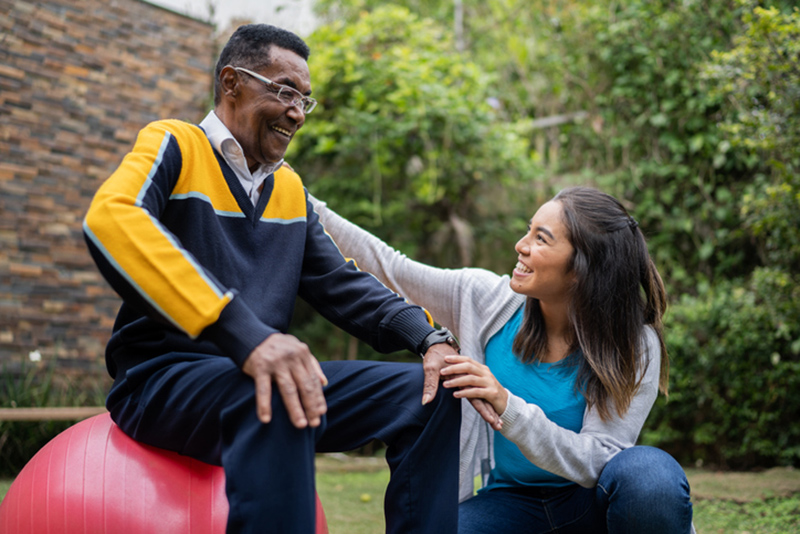
Home care services, like those offered by Compassionate Nursing Services, can help with stroke recovery in a number of ways.
Going through a stroke is a scary, unexpected experience. The consequences can be minor to life-altering, but one thing is clear: follow-up care is a necessity. Fortunately, most of this care can be provided at home. If you’re taking care of a loved one following a stroke, below are a few of the ways you can help ensure the best possible stroke recovery.
How Can I Help Someone at Home Following a Stroke?
An essential initial step is talking with the person’s medical team. Find out as much as possible about what might have triggered the stroke, what the likely outcome is, and what is recommended with respect to a treatment and recovery plan. It’s also a good idea to request resources from the doctor about strokes. Education will be important in your ability to offer the best help.
In addition, our home care specialists recommend these guidelines:
- Start a diary. A plain notebook or digital document is all you will need. Start with a baseline entry regarding the person’s physical and emotional state, any medications being taken, sleeping and eating habits, etc. It’s not uncommon for new stroke symptoms to surface months after a stroke, and any changes should be brought to the physician’s attention right away.
- Provide motivation. Sticking to the doctor’s recommended changes in lifestyle isn’t always easy. It is likely there will be a rehabilitation program to follow, as daily exercise is a great recovery tool for both the brain and body. Encourage the person to take part in these activities precisely as instructed. Joining in to exercise with the person can be a good way to ensure compliance with doctor’s orders.
- Refrain from taking over. You may be inclined to want to do as much as possible for the person, to allow them to rest and not overexert themselves. However, it’s essential for the person to do as much independently as possible in order to maximize recovery. Step in when absolutely necessary with just enough support to enable them to complete a challenging task.
- Show patience. The healing process post-stroke might take quite a bit of time, and there will likely be a number of challenges along the way. The individual could also experience pseudobulbar affect, which causes abrupt bouts of laughter or crying for no obvious reason. They might also experience depression, anxiety and fear of another stroke occurring, or grief. These types of emotional changes could be distressing for both of you, but treatment is available to help.
- Take care of yourself. Providing care for someone you love after a stroke may be physically and emotionally exhausting. Be mindful to create appropriate boundaries to avoid caregiver stress and burnout. Solicit the assistance of other loved ones, friends, or a skilled caregiver to allow you time to step away to take care of your own health and wellbeing.
The Crucial Role of Home Care Post-Stroke
An in-home caregiver should be an integral part of someone’s stroke recovery. A few of the many ways a home care provider like Compassionate Nursing Services can help include:
- Assisting with fall prevention and other home modification suggestions for improved safety and independence
- Offering transport and accompaniment to doctors’ appointments and procedures
- Running errands, such as picking up groceries and prescriptions
- Planning and preparing healthy meals according to any dietary restrictions
- Serving as a friendly companion for conversations, help with engaging in exercise programs, playing fun and mind-stimulating games, etc.
- Helping with personal hygiene needs as required
- And more
Contact Compassionate Nursing Services, a trusted provider of in-home care in Oakville, MO and the surrounding areas, at 314-432-4312. Learn how our fully trained and experienced caregivers can ensure an easier recovery for someone you love after a stroke.
